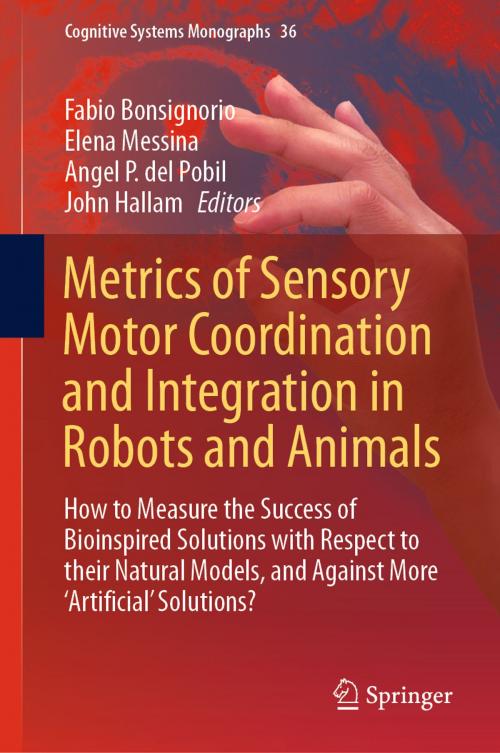Metrics of Sensory Motor Coordination and Integration in Robots and Animals
How to Measure the Success of Bioinspired Solutions with Respect to their Natural Models, and Against More ‘Artificial’ Solutions?
Nonfiction, Science & Nature, Technology, Robotics, Computers, Advanced Computing, Artificial Intelligence| Author: | ISBN: | 9783030141264 | |
| Publisher: | Springer International Publishing | Publication: | March 23, 2019 |
| Imprint: | Springer | Language: | English |
| Author: | |
| ISBN: | 9783030141264 |
| Publisher: | Springer International Publishing |
| Publication: | March 23, 2019 |
| Imprint: | Springer |
| Language: | English |
This book focuses on a critical issue in the study of physical agents, whether natural or artificial: the quantitative modelling of sensory–motor coordination.
Adopting a novel approach, it defines a common scientific framework for both the intelligent systems designed by engineers and those that have evolved naturally. As such it contributes to the widespread adoption of a rigorous quantitative and refutable approach in the scientific study of ‘embodied’ intelligence and cognition.
More than 70 years after Norbert Wiener’s famous book Cybernetics: or Control and Communication in the Animal and the Machine (1948), robotics, AI and life sciences seem to be converging towards a common model of what we can call the ‘science of embodied intelligent/cognitive agents’.
This book is interesting for an interdisciplinary community of researchers, technologists and entrepreneurs working at the frontiers of robotics and AI, neuroscience and general life and brain sciences.
This book focuses on a critical issue in the study of physical agents, whether natural or artificial: the quantitative modelling of sensory–motor coordination.
Adopting a novel approach, it defines a common scientific framework for both the intelligent systems designed by engineers and those that have evolved naturally. As such it contributes to the widespread adoption of a rigorous quantitative and refutable approach in the scientific study of ‘embodied’ intelligence and cognition.
More than 70 years after Norbert Wiener’s famous book Cybernetics: or Control and Communication in the Animal and the Machine (1948), robotics, AI and life sciences seem to be converging towards a common model of what we can call the ‘science of embodied intelligent/cognitive agents’.
This book is interesting for an interdisciplinary community of researchers, technologists and entrepreneurs working at the frontiers of robotics and AI, neuroscience and general life and brain sciences.















